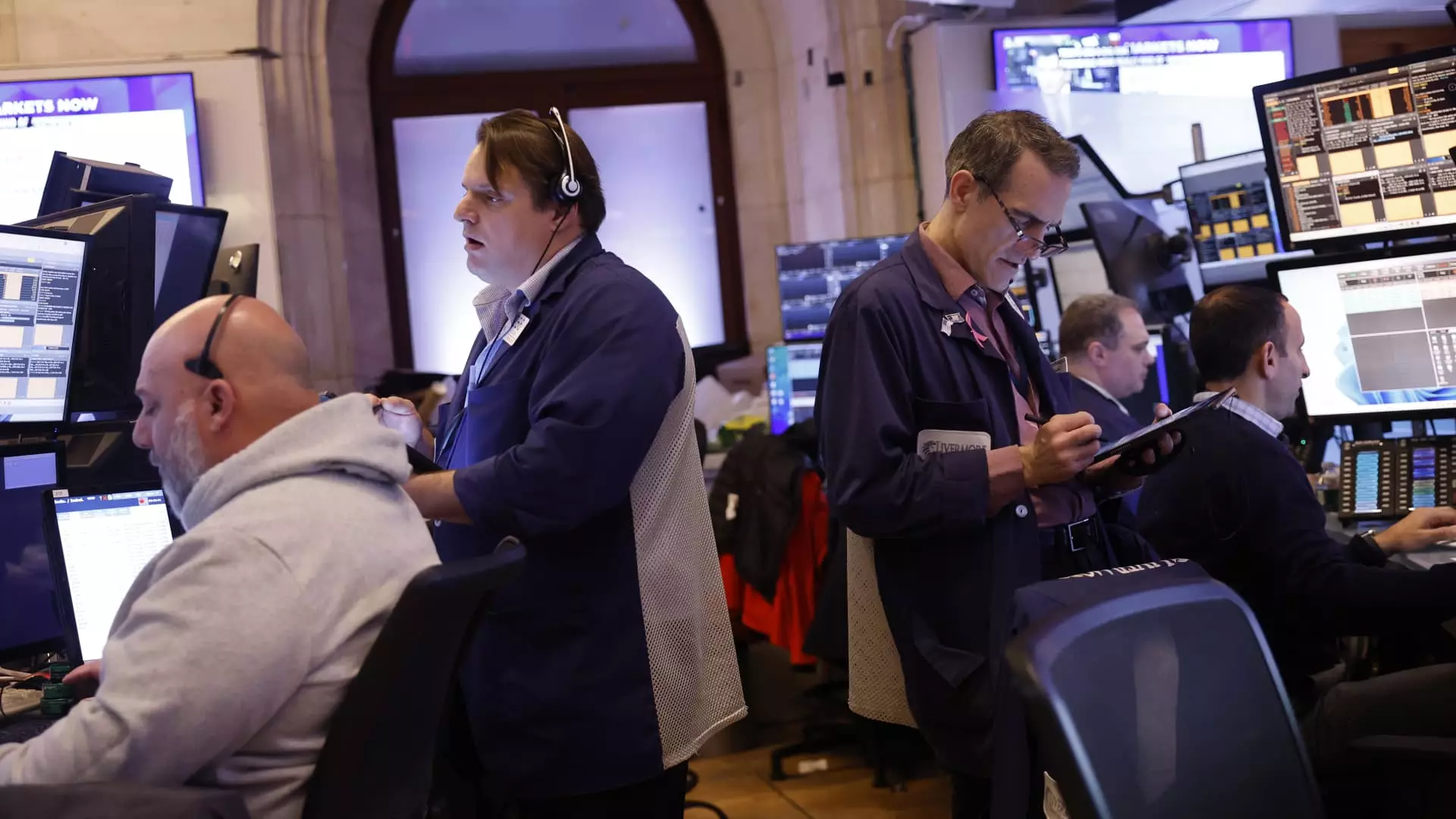The stock market landscape, particularly in the United States, has experienced a significant shift following the presidential election, with many companies reporting remarkable returns. While the overall sentiment in the market has been buoyant, it raises critical questions about sustainability, investment strategies, and the broader economic implications. This article examines the factors contributing to this surge, the type of companies benefiting the most, and the potential risks associated with short-term trading strategies.
Since the presidential election, major companies listed in the S&P 500 have seen steep increases in share prices, with the top 10 performers recording gains of 18% or more between November 5 and November 20. Companies such as Axon Enterprise, which specializes in law enforcement technology, and Tesla, the electric vehicle titan led by Elon Musk, reported staggering growth rates of over 35%. This is in stark contrast to the broader index’s modest increase of 2% during the same period. Such data, provided by S&P Global Market Intelligence, not only highlights individual company performances but also illuminates broader trends in investor sentiment influenced by political changes.
Despite the impressive returns, financial experts urge caution among investors tempted to capitalize on short-term price surges. Jeremy Goldberg, a certified financial planner and portfolio manager, emphasizes the risks of relying solely on momentum-driven investments. “Momentum is powerful,” Goldberg notes, but succumbing to the allure of immediate gains without understanding the underlying drivers can lead to poor investment decisions. Investors are encouraged to discern which elements are propelling stock prices upward and assess the viability of these factors in a longer-term context.
One of the key elements fueling these remarkable stock performances is the anticipated policy landscape under the new administration. Analysts suggest that deregulation and a more favorable approach toward mergers and acquisitions may lead to bullish sentiment across various sectors. Take, for instance, the energy sector: experts predict that the Trump administration will expedite approvals for oil and gas initiatives, an aspect that has already resulted in substantial gains for companies like EQT Corporation. With expectations of fewer restrictions on fossil fuel projects, companies aligned with this vision have seen their stocks surge, reflecting investor optimism about potential policy shifts.
Several sectors have distinctly benefited from these political circumstances. For example, companies in the streaming and entertainment industry, including Warner Bros. Discovery and The Walt Disney Company, could gain from a more accommodating regulatory environment for mergers. Such supportive frameworks are instrumental in shaping market dynamics and affecting stock performance. Additionally, sectors heavily dependent on technological advancements, like artificial intelligence, have seen some firms reporting stellar earnings driven by innovations in AI technology. Palantir Technologies, for instance, noted unprecedented demand for its AI offerings, drastically lifting its stock prices post-election.
The phenomenon of companies enjoying dual benefits—policy facilitation and favorable earnings—further complicates the investment narrative. Vistra Corp., an energy provider, witnessed a 27% stock jump fueled by its plans to collaborate with tech giants on new energy projects, simultaneously highlighting the intersectionality of technological needs and policy adaptations. The shift towards AI and the demand for energy to support burgeoning data centers signal a transitional phase in the market, catering to the growing technological sector.
Of particular note is the influence of prominent figures like Elon Musk on company performance. With Musk’s close ties to the new administration and his role as an advocate for the electric vehicle industry, Tesla’s stock price has been buoyed by what analysts refer to as the “Elon Musk premium.” Following the election, Tesla experienced a notable increase, partly owing to favorable policies that could disadvantage rival companies. However, this phenomenon highlights another crucial aspect of investing: the volatility that can stem from personality-driven market movements.
While the post-election stock market surge offers enticing opportunities, it is essential for investors to approach with a discerning eye. Understanding the intricate dynamics involved—ranging from regulatory impacts to individual company performance and broader economic signals—can better inform investment strategies. As history has shown, relying on short-term market momentum can be fraught with risks. Carefully weighing these factors will not only enrich investor insight but also contribute to more sound financial decision-making in the unpredictable world of stock trading.

